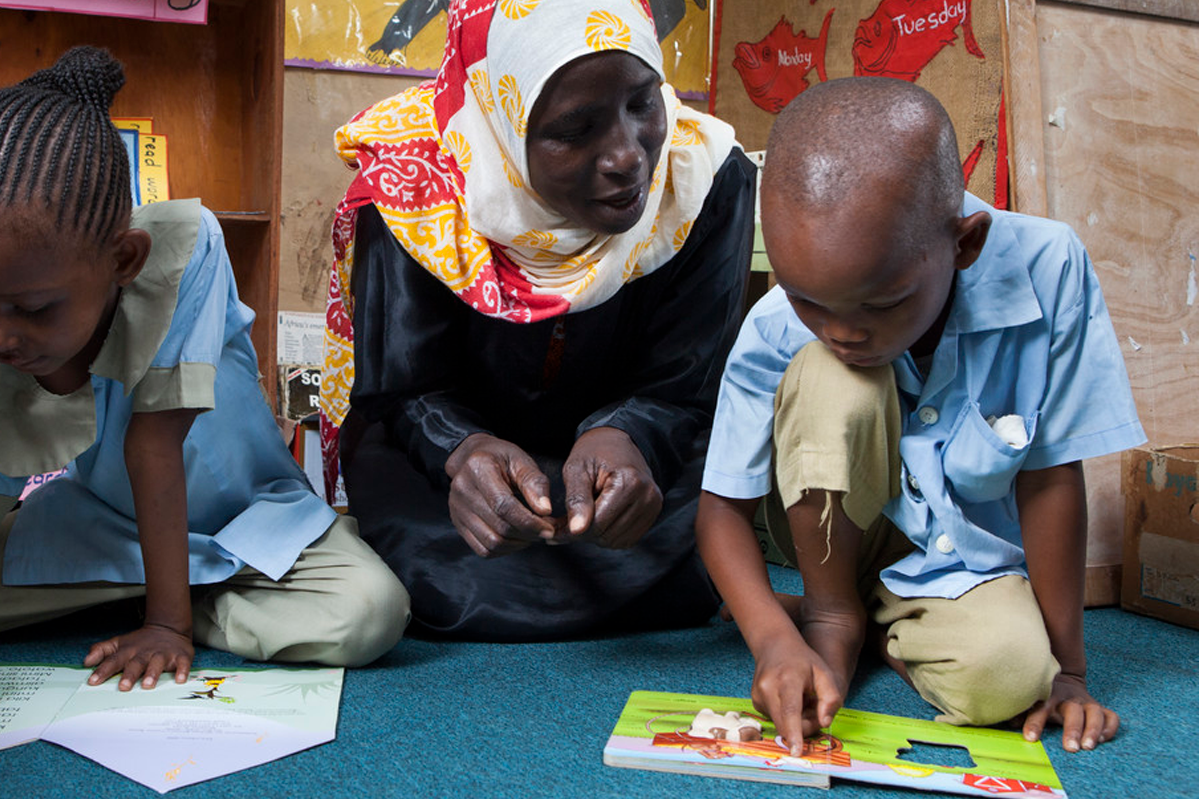Listen to the Introductory Podcast
Principles of Assessment for Schools2030
The central ambition of learning assessments should be that the data they generate can lead to the improvement of teaching practices and learning outcomes. This means that learning assessments are pointless if the information they generate is not used. For learning assessments to be used and useful they need reflect the context they are implemented in, be tailored for their intended purpose and be useable and useful for intended users. Assessments also need be rigorous enough to provide the required information.
The Schools2030 Assessment Strategy is designed work with frontline actors to develop, administer and use assessments. To do this, all work on assessment in Schools2030 is based on three principles, shown in Figure 1.
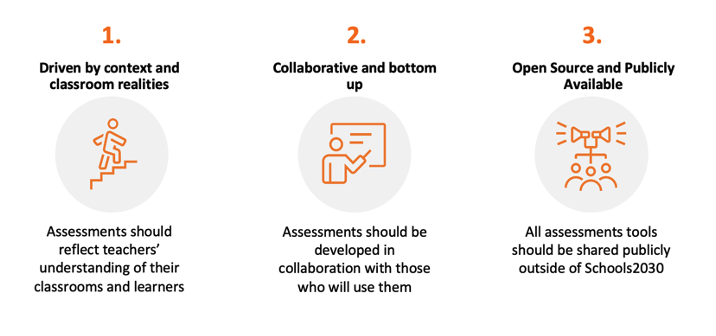
Translating principles into practice
These principles are translated into the assessment strategy and are reflected in the iterative, incremental process that combines user engagement with technical rigour. The process will produce assessments that are effective, easy to use and provide actionable information.
Rather than following a centralised design process, each Schools2030 country follows its own Human Centred Design process. The Schools2030 assessment strategy and the resultant activities and outcomes form part of country-level processes. This nationally-led approach recognises the complex environment of communities and education systems, and is shown in Figure 2.
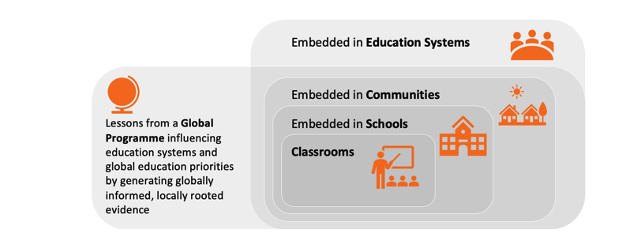
Schools2030 works with national actors and local teachers to develop their own approaches to assessment rather than having assessments produced externally and imposed on them. This is important because:
1. teachers are uniquely well-placed to understand the teaching and learning needs of their classroom in a nuanced way
2. if teachers are involved in developing learning assessments, they are more likely to trust the assessments
3. if teachers are involved in developing learning assessments, they will have a better understanding of how they work and will be much better placed to use them effectively.
The interplay of global, national and school level actors involved in developing and delivering assessments is shown in Figure 3.
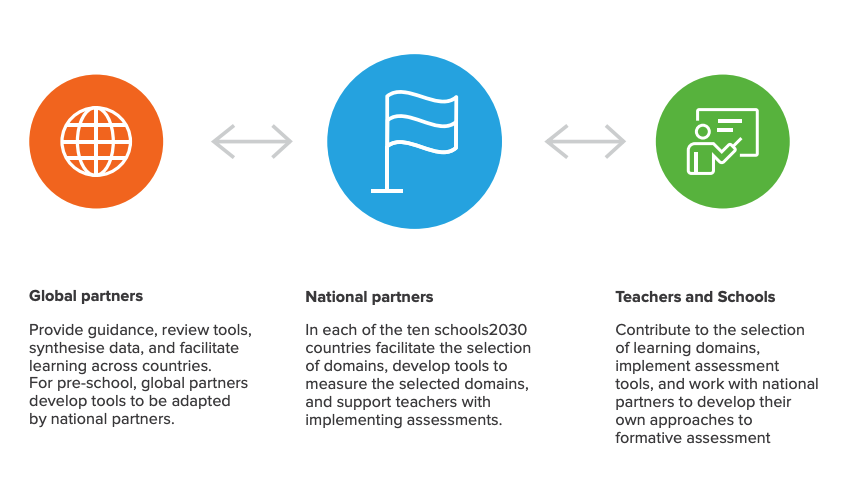
Processes for teacher implemented and teacher generated tools
There are two parallel processes to support the Schools2030 assessment work:
1. Establishing a set of context-driven valid and reliable teacher implemented tools for assessments in each Schools2030 country
2. Supporting the development of teacher generated tools. These will draw on a toolbox of assessments and complementary tools, allowing teachers to use formative assessments to track their HCD solutions over the course of the year.
The sequencing of these teacher implemented and teacher developed tools, and how they align with the Schools2030 three step process are shown in Figure 4.
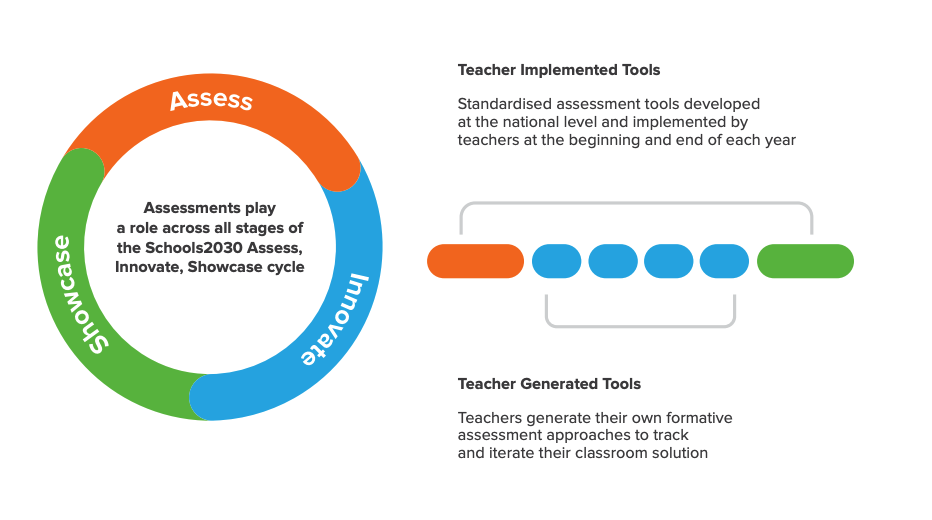
For the first process (teacher implemented tools), each country follows six steps (shown in Figure 5). At the start of the programme, each country analyses their situation and defines the constructs (skills, knowledge and attitudes) that they will focus on. Steps three to six represent a cycle in which national actors and teachers work together to iteratively strengthen the assessments each year.
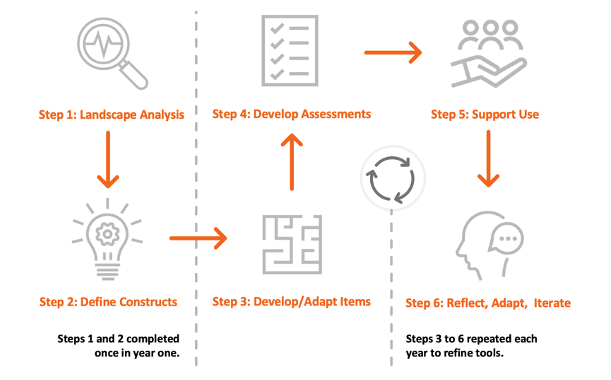
Figure 5 Process of Developing Teacher Implemented Tools
By the second year, countries will be able to learn from each other as well as their own reflections as they work through the cycle again. By the end of Year 3, there should be products that can be shared outside of Schools2030 to benefit a much larger number of learners.
The engagement of local actors is paired with support to ensure that not only are assessments tailored to the local needs, but they also meet technical requirements to perform their intended function. To achieve this, the process passes between the national education stakeholders and the Global Assessment Partners (GAPs). The approach is neither top-down nor bottom-up. Rather, it follows a participatory approach at the local level and is informed by global best-practice brought to bear by the GAPs.
For the second process (teacher generated tools), guidance materials will be provided to national assessment partners on how they can support teachers to generate their own assessments and integrate assessment into their teaching practice. These practices will be supplemented by a toolbox of formative assessment approaches from which teachers can draw inspiration. The work that teachers do on assessment can expand this toolbox over the course of the programme.
The need to engage local actors and base programme design on the needs of teachers and their students may at first appear to be at odds with the importance of technical rigour in learning assessments. However, rigour and contextual relevance are two sides of the same coin rather than being in conflict. Schools2030 believes an iterative approach can produce practical, locally relevant learning assessments that make a crucial contribution to the success of Schools2030 in improving holistic learning outcomes.
For more greater detail about our assessment approach and to access the tools for use in your institution, please see our Assess Page.
